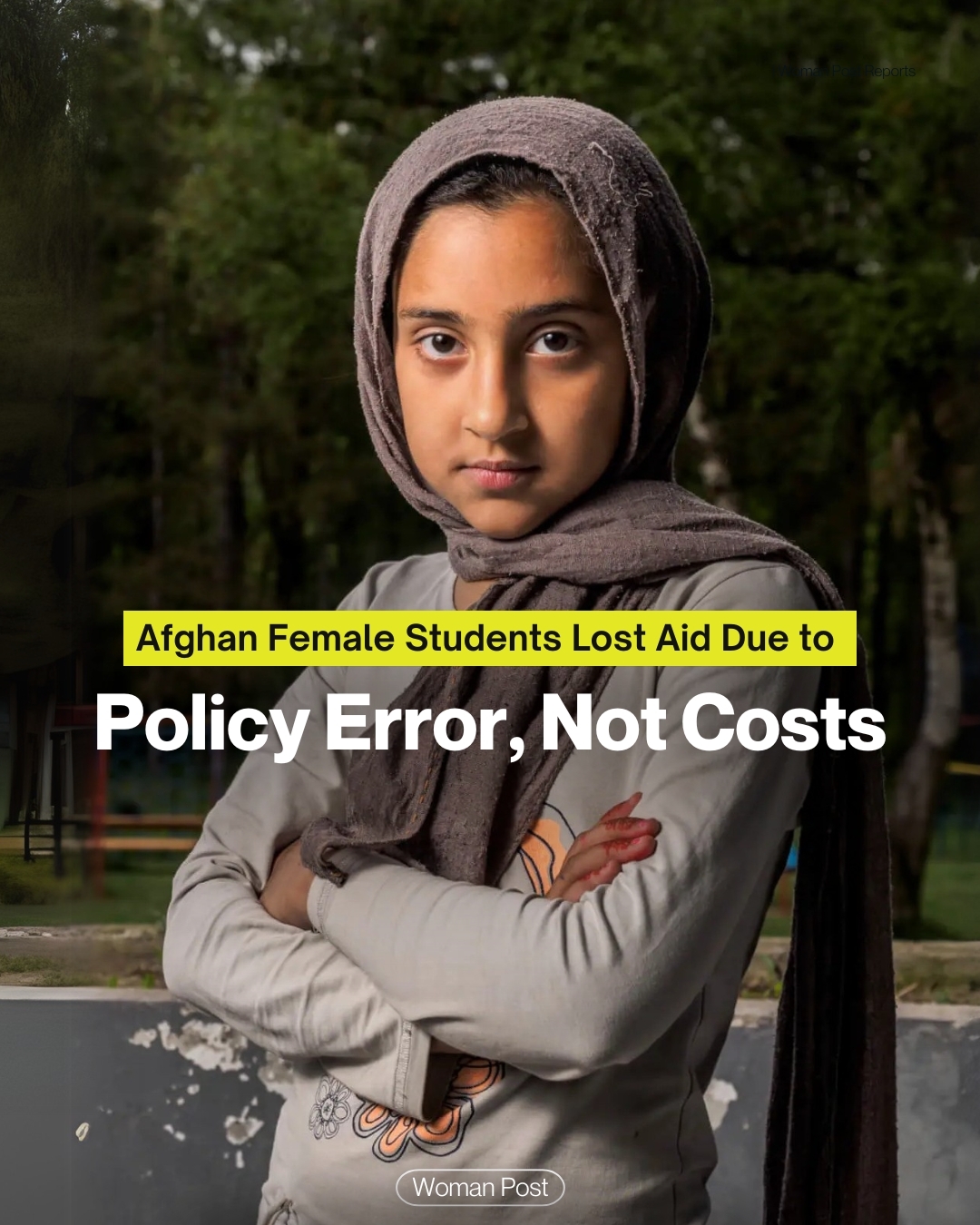Canceling the Afghan Girls’ Scholarship Program Is a Political, Not Budgetary, Decision
On February 26, 2025, the U.S. government abruptly shut down the Women’s Scholarship Endowment (WSE) program, a lifeline for Afghan female students, as part of a sweeping policy shift that eliminated more than 8,600 USAID and State Department initiatives worldwide.
Managed by Texas A&M University’s Borlaug Institute, the program supported 210 Afghan female students, including 126 studying in host countries like Oman, 40 in Qatar, and at least 1,500 enrolled in online programs. With its sudden termination, these students now face an uncertain future, with many at risk of deportation or losing access to higher education entirely. Some of the WSE students in Afghanistan had hoped to enroll in health diploma programs, but those were recently banned by the Taliban.
As a result of the termination:
The (WSE) Scholarship Termination Is Policy Decision, Not a Budget Constraint
The WSE program was not dependent on ongoing U.S. budget allocations; instead, it was sustained through a $50 million endowment established in 2019. The program functioned by using only the interest earned from this investment to fund scholarships. The principal amount of $50 million remained intact and was always set to be returned to the U.S. government at the program’s conclusion in 2028. This means that the U.S. government had already accounted for the investment, and no additional budget was required to continue supporting these students.
The sudden cancellation of the WSE program demonstrates the dangers of fast, politically motivated decisions that disregard long-term educational commitments. The decision has not saved U.S. taxpayer money, as the $50 million was always meant to be returned. Instead, it has disrupted the lives of Afghan women, who were already in the middle of their studies and now face forced return to Afghanistan, where they are at extreme risk.
This aligns with broader spending cuts driven by the Trump administration, implemented by DOGE under Elon Musk to reduce foreign aid.
“After receiving the emails, three students had panic attacks,” said an Afghan university student in Qatar. “We have always lived in stress in Afghanistan, and just when we thought we could finally study in safety, this happens. We are worried about our future, and with midterm exams approaching, the fear is overwhelming.”
Terminating scholarships for Afghan female students is not just a financial issue. This decision, driven by policy rather than budget constraints, has had devastating consequences for Afghan students. Immediate action is needed from the international community, donors, and human rights organizations to prevent these young women from being sent back into a life of oppression.
Managed by Texas A&M University’s Borlaug Institute, the program supported 210 Afghan female students, including 126 studying in host countries like Oman, 40 in Qatar, and at least 1,500 enrolled in online programs. With its sudden termination, these students now face an uncertain future, with many at risk of deportation or losing access to higher education entirely. Some of the WSE students in Afghanistan had hoped to enroll in health diploma programs, but those were recently banned by the Taliban.
As a result of the termination:
- 83 Afghan female students in Oman are facing deportation.
- 40 WSE beneficiaries studying in Qatar have also had their scholarships terminated, leaving their future unclear.
- 1,500 students, primarily women, at AUAF have lost their scholarships due to funding cuts.
- Financial support for tuition, housing, and stipends has ceased.
- Students who fled Afghanistan due to the Taliban’s education ban now face forced return, where they risk persecution, forced marriages, and the complete loss of their academic futures.
The (WSE) Scholarship Termination Is Policy Decision, Not a Budget Constraint
The WSE program was not dependent on ongoing U.S. budget allocations; instead, it was sustained through a $50 million endowment established in 2019. The program functioned by using only the interest earned from this investment to fund scholarships. The principal amount of $50 million remained intact and was always set to be returned to the U.S. government at the program’s conclusion in 2028. This means that the U.S. government had already accounted for the investment, and no additional budget was required to continue supporting these students.
The sudden cancellation of the WSE program demonstrates the dangers of fast, politically motivated decisions that disregard long-term educational commitments. The decision has not saved U.S. taxpayer money, as the $50 million was always meant to be returned. Instead, it has disrupted the lives of Afghan women, who were already in the middle of their studies and now face forced return to Afghanistan, where they are at extreme risk.
This aligns with broader spending cuts driven by the Trump administration, implemented by DOGE under Elon Musk to reduce foreign aid.
“After receiving the emails, three students had panic attacks,” said an Afghan university student in Qatar. “We have always lived in stress in Afghanistan, and just when we thought we could finally study in safety, this happens. We are worried about our future, and with midterm exams approaching, the fear is overwhelming.”
Terminating scholarships for Afghan female students is not just a financial issue. This decision, driven by policy rather than budget constraints, has had devastating consequences for Afghan students. Immediate action is needed from the international community, donors, and human rights organizations to prevent these young women from being sent back into a life of oppression.
Notice:
The WomenPost investigative report on the cancellation of the Women's Scholarship Endowment (WSE) program is grounded in a thorough examination of primary sources, including emails, student narrations, project contracts, and supporting data, ensuring a robust and evidence-based analysis.



